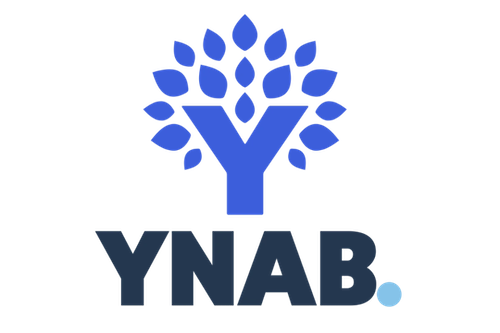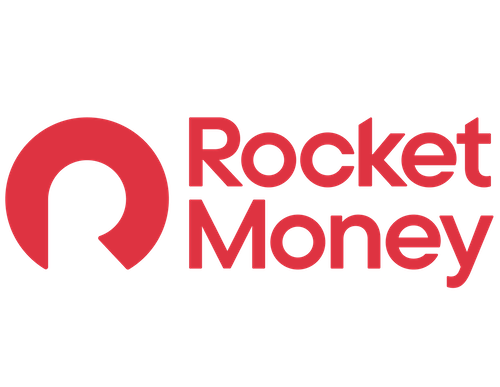Did you know that only 24% of millennials demonstrate basic financial knowledge? That’s a hard statistic to grapple with when you consider the economic hardships the entire world had to face after the pandemic. Then again, personal finance is a struggle for most of us, regardless of who we are or where we’re at in life. It’s not easy managing money.
If you’re looking for a way to take hold of your finances and steer toward a future in the black rather than the red, you’re not alone. All it takes is finding the right resources, such as personal finance software. This type of resource brings all your financial accounts together in one place so you can really get a look at how you’re doing. It might be ugly at first, but the best step you can take is to face the problem head-on.
Personal finance software will help you with the next step in the process. That’s why we’ve put together this list of the best personal finance software available to guide you in making your money work for you, not against you. Plus, we’ll show you what you should look for in personal finance software to get the most for your investment.
Are you ready to see how you can gain financial freedom with the right personal finance software? Let’s get started.
How Can Personal Finance Software Help Me
The best personal finance software streamlines managing your money (no matter how much or little you have). While that process can take many forms based on what your circumstances are and what financial freedom looks like to you, most personal finance software programs have a few things in common.
For example, most of the software we’ve listed below will help you budget, save, invest, monitor your credit score, and even track your net worth. You can set up alerts to keep you on track when you’re getting close to the boundaries you’ve set for yourself. That’s the kicker: personal finance software only works if you put the effort in.
At the same time, personal finance software can make it much easier to get back on track with your finances. Plus, you can even bring your partner into it with specific software such as Honeydue. No matter how you use personal finance software, the idea is to implement it in such a way that benefits you financially. Improving this area of your life could very well provide additional benefits in other aspects as well.
Best Personal Finance Software
Before you make any decisions about which personal finance software to choose, take a look at our list below. With the right software program, you may find financial freedom closer than it appears.
Empower
Empower allows you to connect all your financial accounts to a single dashboard. In addition to monitoring your spending habits and setting up your budgets, you can also track your investments, credit score, and net worth. You’ll even be able to plan for retirement with Empower.
The main software Empower offers is free, but you will have to pay a premium for certain features. For instance, if you have a portfolio of over $100,000, you can pay to receive personalized advice from licensed financial experts. The investment checkup feature allows you to compare your portfolio’s current standings to your target allocation so you can make the most of your investment efforts.
- Plan smarter, retire sooner—Empower helps you optimize your investments for free.
- Maximize your retirement with tools like Monte Carlo simulations and portfolio tracking.
- Take control of your future—get personalized insights to grow your savings.
Quicken
Though there are many alternatives to Quicken, including the software on this list, it’s one of the more well-known software programs for keeping track of your money. In fact, you can easily oversee investments, budgets, taxes, net worth, and even pay bills as well.
The Quicken Starter plan is $3.49 per month or $41.88 when you pay for a year. The Deluxe version isn’t much more monthly at $47.88 billed annually. Even the Premier plan, which is just under $72 for a year’s subscription, can be well worth it when you think of the progress you could make.
You have two great options to take control of your finances: opt for Quicken Simplifi, a sleek, web-based budgeting app that helps you manage spending on the go, or dive into the comprehensive tools of Quicken Classic, perfect for detailed budgeting, tax tracking, and managing rental or business finances. Whichever suits your needs, start your journey to better financial management today by opening your account.
YNAB
You Need A Budget (YNAB), as the name suggests, helps you create a budget to achieve your financial goals. You’ll be able to see your accounts in real time when you link them, either automatically or manually. YNAB also offers customizable reporting and goal-tracking features.
In addition to over 100 free finance workshops, YNAB also offers customizable reporting and goal-tracking features. Take advantage of the 34-day free trial with a 100% money-back guarantee to test out the features. Signing up for an annual subscription after that will cost you $99 per year, or you can choose to go with the monthly plan that costs $14.99.
YNAB (You Need A Budget) makes budgeting simple and effective, helping you take control of your money and reach your financial goals. With YNAB's easy-to-use app, you'll gain clear insights into your spending, save more money, and finally break the paycheck-to-paycheck cycle. Their proven method ensures every dollar has a job, so you can reduce debt and grow your savings. Ready to transform your finances? Sign up for YNAB today and start budgeting better.
Acorns
Acorns makes investing easy and accessible, especially for those just starting their personal finance journey. With Acorns, you can round up your everyday purchases and automatically invest the spare change, turning small amounts into significant savings over time. It’s a simple, hands-off way to start building wealth without needing to be a financial expert.
This makes it easy to start building wealth without needing a large initial investment. Alongside the core investing features, Acorns provides personalized financial guidance and money management tips tailored to your goals.
Acorns also offers Acorns Later, a tool that helps you find the right IRA to match your retirement goals, making planning for the future easier than ever. Whether you’re looking to start saving or want to set yourself up for a comfortable retirement, Acorns is a smart choice to get there.
- Acorns rounds up spare change from purchases and invests it for you
- Get a $20 bonus when you invest just $5 and start a recurring deposit
- Start building long-term wealth with just $3/month—free if you're under 24 and in school
Albert
Do you have savings at the top of your priority list? Check out Albert, the software that lets you automate your savings and keep track of your budget at the same time. You can even qualify for annual cash bonuses and invest with Albert as well.
Albert helps you monitor your spending, identify any potential savings, and add to your savings account to meet your goals. Plus, you’ll get 10-20% cash back on purchases with your Albert debit card.
When you open a Smart Savings account with Albert, you’ll receive a 0.1% APY interest rate. If you opt for the Genius plan, your interest rate goes up to 0.25%. The Genius plan costs a minimum of $8 per month but allows you access to premium features on top of the basic plan.
Albert is only available as an app and you can only reach customer support over the phone. While financial education resources are available, they are somewhat limited compared to other software on our list.
- No monthly fees or minimum balance requirements
- Get paid up to 2 days early with direct deposit
- Access up to $250 in cash advances with no interest or credit check
- Smart budgeting tools and automated savings features
- Earn cashback rewards on everyday purchases
Rocket Money
Rocket Money’s main purpose is to help you lower the cost of your bills to increase your monthly savings. Unlike other types of financial software, you’ll upload bills instead of connecting bank accounts. However, the experts at Rocket Money will negotiate a lower rate for you, so you don’t have to spend time on the phone.
Though Rocket Money is technically free to download and join, you will have to pay the company 40% of any of the savings you incur because of their efforts. The good news is that once you pay for the service, you can continue to enjoy the savings benefits for years after.
- Lower your internet, phone, and cable bills automatically
- Trusted by over 5 million users to cut monthly expenses
- Contacts providers to find discounts and hidden savings
- Saves users an average of $300 per year
PocketGuard
College students looking to start early with their finances may find PocketGuard helpful to manage their money and cancel unwanted subscriptions. PocketGuard provides a goal-tracking feature that can motivate students to track their spending, stick to customized budgets, increase their savings, and even boost their credit scores.
PocketGuard’s In My Pocket feature allows you to see what cash you have available to spend at any given time. In addition, most other features are free, but you will have to endure a few ads here and there. You can also take advantage of smart algorithms that will pinpoint areas where you can save.
TurboTax
One of the more specialized personal finance software programs on our list, TurboTax allows you to file your taxes for free for simple tax returns only, as long as you don’t have any schedules attached. Not all taxpayers qualify. Like many other tax preparation services, TurboTax walks you through the filing process to make filing that much easier.
Individuals who are self-employed or own a small business can receive dedicated and comprehensive services for around $120.
Buddi
As long as your computer can run Java, you can use Buddi, open-source software that’s free to the public. This software never requires your credit card information and is available in multiple languages as well.
Once you set up an account with Buddi, you can easily generate reports using the various budgeting tools. Buddi will also allow you to track your income and spending habits. There are also free tutorials on how to record refunds and schedule transactions. Buddi continues to evolve, offering users even more ways to manage their money, for free.
FutureAdvisor
Personal finance software isn’t all about budgeting. Instead, you can use it to invest your money to increase your wealth. If investments are a large part of your financial goals, FutureAdvisor has the tools you need.
For example, FutureAdvisor can help you set up accounts and goals. The software will also provide you with personalized recommendations to increase your tax-saving opportunities, increase the diversity of your portfolio, and maximize the benefits of each account. It’s important to note that though FutureAdvisor can help guide your investments, it can’t make them for you.
DIY investors worldwide use FutureAdvisor to manage their investment assets. The monthly cost of this software will depend on what type of assets you hold. Instead of a monthly fee, there is a 0.5% fee billed quarterly.
Honeydue
Managing your money with your partner is easier with Honeydue. Don’t convince this personal finance software with a “honey-do” list. Instead, Honeydue gives you and your partner a way to link your accounts and customize what you share.
There’s no monthly fee to use this personal finance software, though you are limited to a mobile app. Any transactions you have on your linked accounts are automatically categorized by Honeydue. You can also set up notifications to alert you of upcoming bills, in addition to overspending based on what limits you set.
Honeydue lacks a wide array of financial education resources. There are fewer reporting features than other software on our list as well. That said, Honeydue goes a long way in helping you and your partner get on the same page about your finances.
What to Look for in Personal Finance Software
The best features of personal finance software have similar offerings to the best budgeting apps. Here are some characteristics you should look for in quality personal finance software:
- Specific purpose: Some personal finance software does it all, while others are limited to certain features.
- Free trial: Test-driving finance software for a few days or even weeks can tell you a lot more about how useful it is than any features list.
- Real-time updating: When you look at your finances, you want to know how much money you have at any given moment. The best personal finance software keeps up with your purchases to offer a real-time view of your finances.
- Learning resources: Educating yourself about finance is one of the best steps you can take to increase your income potential.
- Account fees: Personal finance software should help you save money, not spend it. At the same time, the right help can be well worth the price.
- Additional features: Some of the software on our list offers account holders the option of choosing bill negotiation or investing directly from the software itself. Other personal finance software varies in what unique additional features it offers.
Not every software program will have these features, but picking out the ones that mean the most to you can help you narrow the playing field until you’ve got a winner.
FAQs
Personal finance software varies from one application to the next. However, most personal finance software allows you to manage your money as a way to gain financial independence through budgeting, saving, monitoring your credit, investing, and even negotiating your bills.
The answer to this question will be unique from one person to the next. For some, personal finance is of the utmost priority, so spending a corresponding amount on software to optimize this aspect can be worth it. Generally speaking, it’s best to gain more from personal finance software than what you pay for it to come out on top.
The best personal finance software is the one that helps you the most. Not all personal finance software that’s popular will work for everyone.
Just like online banking, personal finance software is safe so long as you take the appropriate precautions. Be sure to use only computers and smartphones you trust to log in and keep your login information safe from prying eyes.
Take Time to Prioritize Personal Finance
We hope you’ve found this article helpful in determining which personal finance software works best for your situation. There are many to choose from, but the best is the one that helps you the most. Whether you’re looking to save for the future or improve your credit score in the short-term, personal finance software can help you accomplish those goals.
Now that you’ve picked out personal finance software to guide your future financial decisions, how will you plan for what’s next? With so many options to choose from, you’ll need help figuring out which is the best solution for you. Stay tuned for more financial advice you can rely on to put you on the inside track.













